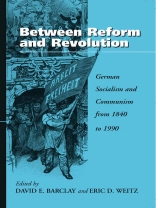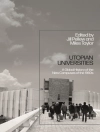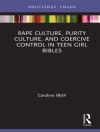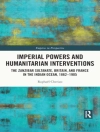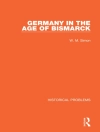The powerful impact of Socialism and Communism on modern German history is the theme which is explored by the contributors to this volume. Whereas previous investigations have tended to focus on political, intellectual and biographical aspects, this book captures, for the first time, the methodological and thematic diversity and richness of current work on the history of the German working class and the political movements that emerged from it. Based on original contributions from U.S., British, and German scholars, this collection address a wide range of themes and problems.
Jadual kandungan
List of Abbreviations
Introduction
David E. Barclay and Eric D. Weitz
Chapter 1. Diagnosing the “German Misery”: Radicalism and the Problem of National Character, 1830 to 1848
Warren Breckman
Chapter 2. Working-Class Politics at the Crossroads of Conservatism, Liberalism, and Socialism
Hermann Beck
Chapter 3. The Lassallean Labor Movement in Germany: Organization, Social Structure, and Associational Life in the 1860s
Toni Offermann
Chapter 4. Bürger and Workers: Liberalism and the Labor Movement in Germany, 1848 to 1914
Ralf Roth
Chapter 5. “Genossen und Genossinnen”: Depictions of Gender, Militancy, and Organizing in the German Socialist Press, 1890-1914
Mary Jo Maynes
Chapter 6. The Social Democratic Electorate in Imperial Germany
Jonathan Sperber
Chapter 7. Latent Reformism and Socialist Utopia: The SPD in Göttingen, 1890 to 1920
Adelheid von Saldern
Chapter 8. A Social Republic? Social Democrats, Communists, and the Weimar Welfare State, 1919 to 1933
David F. Crew
Chapter 9. The Iron Front: Weimar Social Democracy between Tradition and Modernity
Donna Harsch
Chapter 10. Communism and the Public Spheres of Weimar Germany
Eric D. Weitz
Chapter 11. The Rise and Fall of Red Saxony
William Carl Mathews
Chapter 12. Cultural Socialism, the Public Sphere, and the Mass Form: Popular Culture and the Democratic Project, 1900 to 1934
Geoff Eley
Chapter 13. The Social Origins of Unity Sentiments in the German Socialist Underground, 1933 to 1936
Gerd-Rainer Horn
Chapter 14. Communist Resistance between Comintern Directives and Nazi Terror
Beatrix Herlemann
Chapter 15. Rethinking Social Democracy, the State, and Europe: Rudolf Hilferding in Exile, 1933 to 1941
David E. Barclay
Chapter 16. Ordnungsmacht and Mitbestimmung: The Postwar Labor Unions and the Politics of Reconstruction
Diethelm Prowe
Chapter 17. The Soviets, the German Left, and the Problem of “Sectarianism” in the Eastern Zone, 1945 to 1949
Norman Naimark
Chapter 18. Pronatalism, Nationbuilding, and Socialism: Population Policy in the SBZ/DDR, 1945 to 1960
Atina Grossmann
Chapter 19. German Social Democracy and European Unification, 1945 to 1955
Dietrich Orlow
Chapter 20. The Politics of Culture and the Culture of Everyday Life in the DDR in the 1950s
Anna-Sabine Ernst
Chapter 21. Social Democratic Gender Policies, the Working-Class Milieu, and the Culture of Domesticity in West
Germany in the 1950s and 1960s
Hanna Schissler
Chapter 22. Is the SPD Still a Labor Party? From “Community of Solidarity” to “Loosely Coupled Anarchy”
Peter Lösche
Chapter 23. Good-bye to All That: The Passing of German Communism and the Rise of a New New Left
Eric D. Weitz
Selective Bibliography
List of Contributors
Index
Mengenai Pengarang
Eric D. Weitz is Professor of History at the University of Minnesota, Minneapolis.
